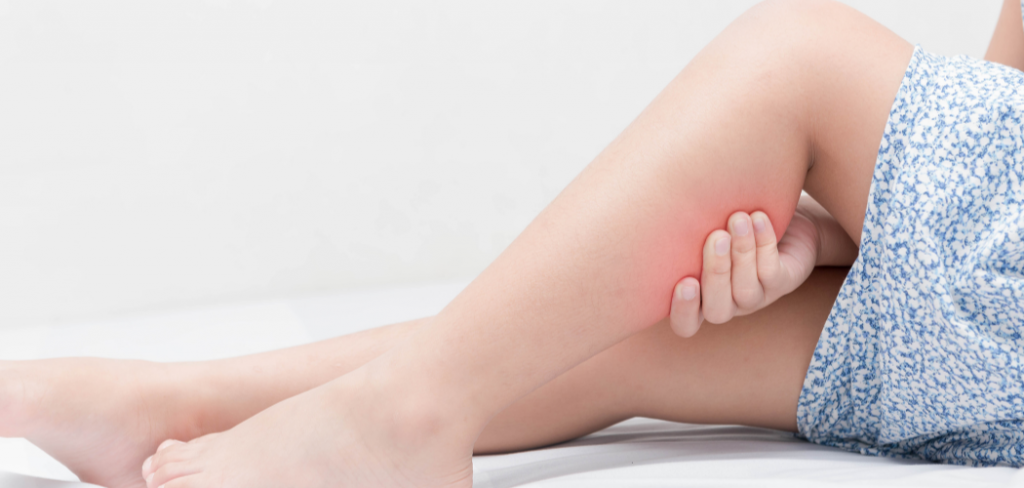A night of wonderful sleep is always key for a more energized day when you wake up. A quiet room with a cool temperature is sometimes all you need to have a sound sleep. Having a comfy bed, warm sheets, and a fluffy pillow also helps not to give you discomforting hip pain. Thus, contributes a lot to a restful night. But do you know what’s hard to deal with sometimes? Stiff and tightened muscles, specifically leg cramps. Read on and find out why you get leg cramps at night of all the time of the day, seriously?
Causes of Leg Cramps At Night:
1. Sedentary Lifestyle.
Being at your work desk all day especially in a very bad posture could make leg muscles prone to cramping. In order for muscles to function properly, it needs to be stretched regularly. This will also maintain a good the blood flow in your veins.
2. Sleeping on the same position for hours.
When the body is in the same position for a long period of time it causes leg cramps. What happens is that your brain is still sending signals to your muscle groups. It tells them to contract or move even when you’re sleeping. Muscle rigidity during sleep is pretty common especially for those who tend to sleep in one position the whole night. Although, there’s nothing you can do about it consciously.
3. Stress Can Cause Leg Cramps at Night.
When you’re stressed, it tends to affect your entire nervous system. Stress also affects how your blood flow acts by adding additional pressure on blood vessels. It results in a reduced flow of blood to your muscles which in turn causes pain and tension.
4. Long-hours on your feet.
Like having a sedentary lifestyle, being on your feet for long hours can cause nocturnal cramps. If you can’t avoid standing for hours, take a few minutes of break to stretch and keep your blood flow circulate properly.
5. Too much exercise.
Getting your muscles overworked by exercising too much can also cause your leg cramps at night. This happens most especially if you fail to hydrate properly and not taking short breaks or stretching.
6. Lack of vitamin D causes leg cramps at night.
Vitamin D plays the role of absorbing calcium, immunity, and protects bone, heart, and muscles. Lack of vitamin D may cause leg cramps to happen when you are sleeping.
Treatment and Prevention of Leg Cramps at Night:
Posture-wise, sleeping on your back with a pillow tucked under your knee is one of the best ways to relax your body. It puts your spine in a neutral position. You can also try sleeping sideways with a pillow in between your knees. Stretching before you sleep is also a great way to maintain supple muscles and to release any stress trapped in between them.
But if you’ve been experiencing this pain in the same place on consecutive days, it might be time to visit a doctor and get checked up. There could be some underlying conditions contributing to the situation, and we need to catch them early.
Treatment:
If nocturnal leg cramps happen frequently, see a doctor to get the right diagnosis and receive proper treatment. However, you can try the following when it occurs to you and needs a quick remedy.
- Gently exercising or massaging your leg. This may help your muscles relax. Gently knead and loosen muscles by using one hand or both.
- Stretch your leg. If the cramps are on your calf, flex your foot in a direction that your toes are pointing towards you.
- Press on your heels while walking or standing. It will relax your calf because it will activate its opposite muscles.
- Soothe with heat. Place a hot towel on the affected area. A hot water bottle or heating pad works well too. A warm bath or shower may also come helpful.
- Drinking a small amount of pickle juice. Although it hasn’t been proven effective, according to research that the pickle juice triggers muscular reflexes when the liquid reaches the throat. This shuts down the cramped feeling.
- Over-the-counter painkiller. This is optional when you feel tenderness after a cramp.
Prevention:
If it happens more often:
- Stretch your muscles in your lower legs regularly.
- Before you go to bed each night, stretch your calves like when you do post-exercise calf stretching.
These may also help as night-time prevention:
- If you sleep lying on your back, make sure that your feet are in the right position with toes pointing upwards. Place a pillow at the end of your bed and propped up against the soles of your feet.
- If you sleep on your stomach, get your feet to hang over the end of the bed. This will help your feet in a relaxed position and avoid your calf muscles from contracting and tensing.
- Your sheets and blankets should be kept loose and giving your leg ample room to move.
Conclusion:
Sleep without a doubt is necessary for any human or living creature. It allows us to rest and recharge our batteries, so we can go about the next day fully charged and ready to seize the day. But as much as we want some peaceful sleep, there will be some factors that may disrupt our sleep. Leg cramps at night or nocturnal cramps is common among us.
Nocturnal leg cramps can be treated and prevented by stretching, sleeping in a different position or having enough room to move. On the other hand, maintaining a well-balanced diet, proper hydration, exercising, and taking breaks from extraneous activities helps to let it happen more frequently.
However, when nocturnal leg cramps become unbearable and consistent, it might be time to schedule a checkup with your doctor. As we all know, it’s always better safe than sorry.
